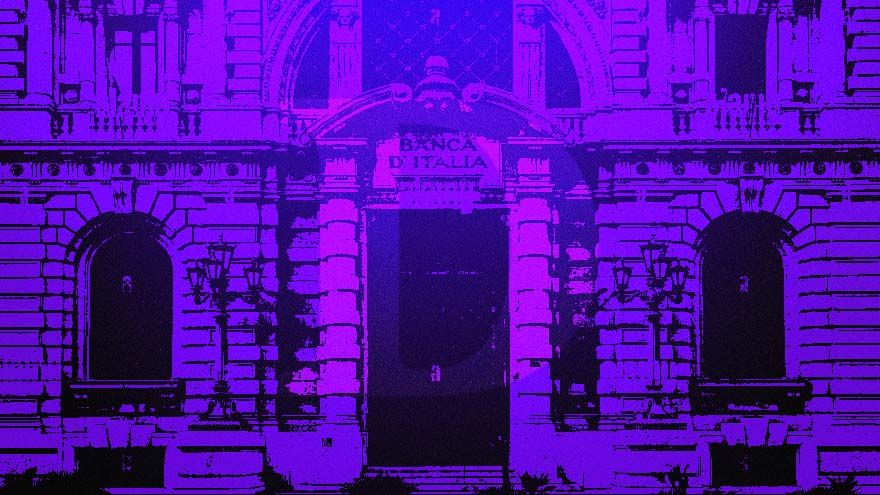- Cryptogram
- Posts
- Worldcoin a game changer? 😮
Worldcoin a game changer? 😮
Analysing Worldcoin and its implications

28 July 2023
Hello there,
We are treading stormy waters currently – the US Fed has increased interest rates (again!) and Bitcoin is consolidating just above $29,000 with most altcoins losing value over the week. If S&P 500, which has rallied quite well lately, retracts its gains, we are in for a tough couple of months ahead.

Meanwhile, the story of the week is about Worldcoin – a project that started in 2021 without much fanfare. Its lofty aim of creating a human eye repository by verifying eye scans was almost laughed off then. Two years and $240 million funding hence, Worldcoin’s distribution of WLD crypto token along with increasing availability of its iris-scanning Orb, has put it back in the limelight.
There are concerns on centralisation, privacy, security and tokenomics – we address these while arguing that such projects represent how blockchains can indeed become a part of everyday lives.
Let’s dive in.
Top-3 stories of the week:
1
Polygon Labs will work with Milano Hub, the innovation center of Italy’s central bank, to launch the “Institutional DeFi for Security Token” ecosystem. The pilot aims to create a regulated environment for security token trading while exploring different designs for security tokens, and shows that major financial institutions remain interested in the potential of blockchain technology despite the negative sentiment that has surrounded the sector lately.
2
Binance is set to relaunch in Japan next month. This comes after the company faced a regulatory warning from Japan's Financial Services Agency two years ago for operating without authorization. Binance will not simply relaunch in the country. It is coming back via the acquisition of already regulatory compliant Sakura Exchange BitCoin, which closed in November of last year.
3
The Avalanche Foundation has launched a $50m initiative called "Avalanche Vista" to encourage tokenisation on the Avalanche blockchain. The goal of this program is to facilitate transactions of digital assets like real estate and collectibles, tokenising real world assets to make transacting with them more seamless. Avalanche sees tokenisation's potential use cases extending beyond these to company equity, venture capital, debts, intellectual property, and portfolio diversification.
The newsletter is put together by Giottus Crypto Platform. You can read all the previous issues of Cryptogram here.
Was this newsletter forwarded to you?
WEEKLY MACROS
Total crypto market cap - $1.18 trillion - DOWN 2.5%
Bitcoin price - $29,230 - DOWN 2.3%
The dollar index (DXY) - 101.79 - UP 1%
Bitcoin Dominance - 49.76% - No change
Crypto Fear and Greed Index - 52 - the market is in neutral state
ICO calendar
30 July – Lucky Bird
1 July – Syntrum

THE HOT TAKE
Worldcoin represents a march forward
What can you do by having a scanned repository of all human eyes? One, you can verify a person as human. Given we are not yet in a race against AI or robots, what else can this be used for? Worldcoin wants its repository to be the enabler of future projects such as universal basic income, online voting or be the go to digital passport that is borderless. Pretty lofty, yes. But, as an idea, there is some merit.
Co-founded by OpenAI’s Sam Altman, Worldcoin has already amassed more than 2 million users. WLD token is trading around $2.1 today. Coinciding with the launch of the Worldcoin Protocol, it launched the World ID system and expanded its WorldApp to over 80 countries—with plans to increase that number to 120. Currently, in India, there are 18 orbs available across Bengaluru, Haryana, New Delhi, Noida and Ghaziabad.
Today, we analyse the key aspects of the protocol and its WLD token.
Controversial tokenomics
Obviously, 2 million individuals have adopted Worldcoin as it benefits them in terms of WLD tokens. Is WLD tokenomics user centric? We are not sure.
In its latest launch, WLD allocation to insiders was increased from 20% to 25% according to Coindesk as the network was more “complex and costly” than imagined.
SOL, on the other hand, was already trading above its key moving averages and has now zoomed past its previous local high around $25 (yellow line).

Source: Twitter
Of the 10 billion tokens in WLD total supply, only 143 million (~1%) are currently tradable. Of these, 43 million WLD are allocated to users who verified with the Orb during the pre-launch phase of the project. Remaining 100 million WLD have been loaned to 5 market makers with loans expiring in 3 months. Therefore, circulating supply is very low and artificially boosts the fully diluted valuation.
Market makers have an incentive to dump tokens
100 million WLD were loaned to market makers to make the coin liquid around launch (representing majority of current supply). These market makers can exercise an option to purchase the tokens at specific prices after the 3-month period. As per the contract, they have an incentive to sell if the price goes above $2.8 as they can re-buy at lower prices after 3 months.

Source: Twitter
Experts warn about privacy issues
Vitalik Buterin’s critique includes potential privacy leaks, misuse by governments of sensitive data, and the risk of eroding internet anonymity. The Orb is a hardware device, and there is no way to verify that it was constructed correctly and does not have backdoors. Hence, even if the software layer is perfect and fully decentralized, the credibility of the hardware devices remains a concern. He also compares biometric approaches with social-graph-based verification and suggests that a combination of all approaches could be beneficial.
ZachXBT, a popular blockchain investigator, posted on twitter that fake accounts are getting sold in telegram for as low as $1 and verification seems to be currently enforced only at the enrollment level, which is not effective and their initial user base may have exploited people in developing countries.
Regulators have started taking notice
The project has already started garnering the attention of watchdogs globally. Britain's data regulator (Information Commissioner Office) has suggested that it will examine Worldcoin and make further enquiries regarding the crypto project. Worldcoin’s Orb is currently unavailable in the US while its tokens can be traded in open market.
Key takeaway
New ideas are often scoffed at the start. Worldcoin may have issues with its tokenomics but the idea is captivating – that users can be incentivised for storing their personal data on blockchains. If Governments can take up such an exercise, there can be meaningful use of such aggregated data.
There are many use cases of blockchain that we are yet to discover – Worldcoin is one such initiative that will naturally evolve. However, we are not suggesting that you invest in or trade WLD – yet.
Disclaimer: Crypto-asset or cryptocurrency investments are subject to market risks such as volatility and have no guaranteed returns. Please do your own research before investing and seek independent legal/financial advice if you are unsure about the investments.
Was this newsletter forwarded to you?
If you have any questions or feedback for us, write to us at [email protected]. You can check out the previous issues here.


